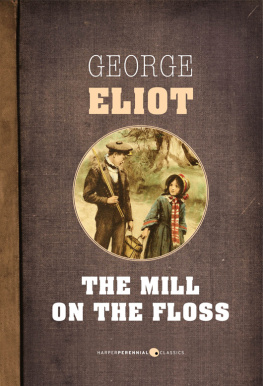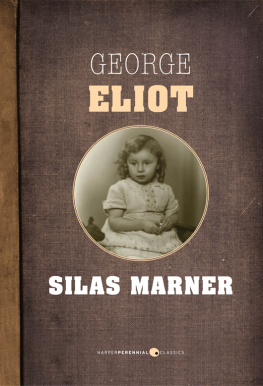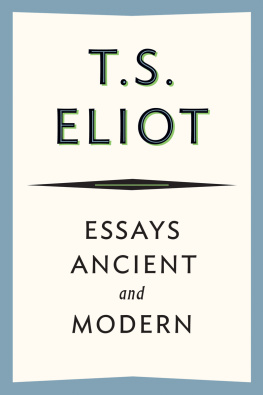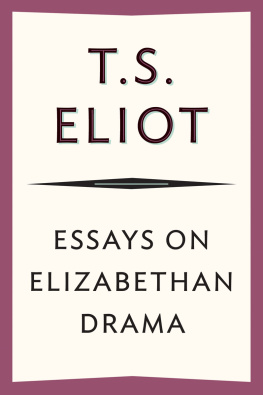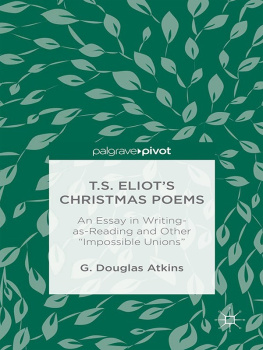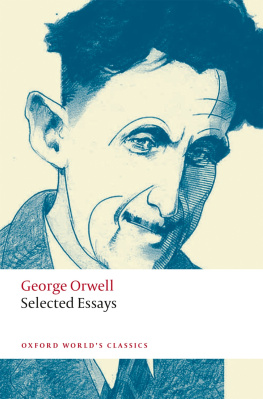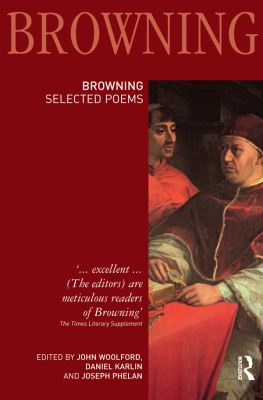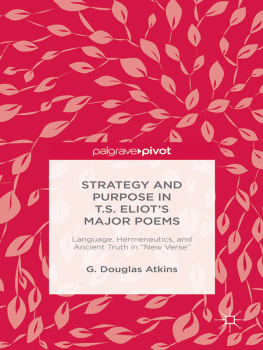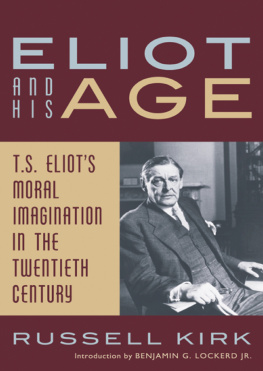
SELECTED ESSAYS, POEMS AND OTHER WRITINGS
MARY ANN ( MARIAN ) EVANS was born in 1819 in Warwickshire. She attended schools in Nuneaton and Coventry, coming under the influence of evangelical teachers and clergymen. In 1836 her mother died and Marian became her fathers housekeeper, educating herself in her spare time. In 1841 she moved to Coventry, and met Charles and Caroline Bray, local progressive intellectuals. Through them she was commissioned to translate Strausss Life of Jesus and met the radical publisher John Chapman, who, when he purchased the Westminster Review in 1851, made her his managing editor. Having lost her Christian faith and thereby alienated her family, she moved to London, where she met Herbert Spencer and the versatile man of letters George Henry Lewes. Lewes was separated from his wife, but with no possibility of divorce. In 1854 he and Marian decided to live together, and did so until Lewess death in 1878. It was he who encouraged her to turn from philosophy and journalism to fiction, and she subsequently wrote, under the name of George Eliot, Scenes of Clerical Life, Adam Bede, The Mill on the Floss, Silas Marner, Romola, Felix Holt, Middlemarch and Daniel Deronda, as well as numerous essays, articles and reviews. George Eliot died in 1880, only a few months after marrying J. W. Cross, an old friend and admirer, who became her first biographer. She was buried beside Lewes at Highgate. George Eliot combined a formidable intelligence with imaginative sympathy and acute powers of observation, and became one of the greatest and most influential of English novelists. Her choice of material widened the horizons of the novel and her psychological insights radically changed the nature of fictional characterization.
A . S . BYATT was born in 1936 and educated at York and Newnham College, Cambridge, of which she is now an Associate. She was a Lecturer in English at University College London from 1972 to 1983. She is a regular broadcaster on the BBC, and has contributed to The Times, Encounter and the New Statesman as well as many other newspapers and weeklies. Her highly acclaimed novels include Shadow of a Sun; The Game; The Virgin in the Garden; Still Life; Sugar and Other Stories; Possession, winner of the 1990 Booker Prize and the 1990 Irish Times/Aer Lingus International Fiction Prize; the novella Angels and Insects; The Matisse Stories; The Djinn in the Nightingales Eye, a collection of fairy tales; and Babel Tower. She has also written a critical study of Iris Murdoch, Degrees of Freedom, a book on Wordsworth and Coleridge, and articles on, amongst others, Tennyson and Wallace Stevens.
NICHOLAS WARREN was born in Nottingham in 1955. He was educated at Kingston Polytechnic and at the Victorian Studies Centre of the University of Leicester. He has taught English in Mexico, worked as a door-to-door salesman and now lectures in English in London. He is presently working on a biography of Francis Newman.
GEORGEELIOT

SELECTED ESSAYS, POEMS
AND OTHER WRITINGS
EDITED BY A . S . BYATT AND NICHOLAS WARREN
WITH AN INTRODUCTION BY A . S . BYATT
PENGUIN BOOKS
PENGUIN BOOKS
Published by the Penguin Group
Penguin Books Ltd, 80 Strand, London WC2R 0RL, England
Penguin Putnam Inc., 375 Hudson Street, New York, New York 10014, USA
Penguin Books Australia Ltd, 250 Camberwell Road, Camberwell, Victoria 3124, Australia
Penguin Books Canada Ltd, 10 Alcorn Avenue, Toronto, Ontario, Canada M4V 3B2
Penguin Books India (P) Ltd, 11 Community Centre, Panchsheel Park, New Delhi 110 017, India
Penguin Books (NZ) Ltd, Cnr Rosedale and Airborne Roads, Albany, Auckland, New Zealand
Penguin Books (South Africa) (Pty) Ltd, 24 Sturdee Avenue, Rosebank 2196, South Africa
Penguin Books Ltd, Registered Offices: 80 Strand, London WC2R 0RL, England
www.penguin.com
This edition published in Penguin Classics 1990
This edition copyright A. S. Byatt and Nicholas Warren, 1990
Introduction copyright A. S. Byatt, 1990
The moral right of the editors has been asserted
The acknowledgements on constitute an extension of this copyright page.
Except in the United States of America, this book is sold subject to the condition that it shall not, by way of trade or otherwise, be lent, re-sold, hired out, or otherwise circulated without the publishers prior consent in any form of binding or cover other than that in which it is published and without a similar condition including this condition being imposed on the subsequent purchaser
ISBN: 9781101492970

Contents

Acknowledgements
WE ARE grateful to the staff of the London Library for their endless helpfulness and courtesy, and in particular to Richard Wilson for his generous assistance with the identification and translation of Eliots references to Greek texts. We are also grateful to Professor Jean-Louis Chevalier, Marjorie Semple, Joan Stephenson, Dr Stanley Taylor and Margaret Whitehead for their assistance in the identification and translation of Eliots foreign language quotations. Peter Caracciolo and Professor Kathleen Tillotson helped us to track down some particularly obscure allusions and, in the case of the latter, gave memorable guidance on bibliographical sources.
We are grateful to the Beinecke Rare Book and Manuscript Library at Yale University for permission to reproduce the extract from The Ilfracombe Journal and the EliotHarrison correspondence from Gordon S. Haights edition of The George Eliot Letters, and Notes on Form in Art.

Introduction
IN 1885 William Hale White wrote a letter to the Athenum in response to John Walter Crosss recently published Life of his dead wife, George Eliot. It is worth quoting in full.
As I had the honour of living in the same house, 142, Strand, with George Eliot for about two years, between 1851 and 1854, I may perhaps be allowed to correct an impression which Mr Crosss book may possibly produce on its readers. To put it very briefly, I think he has made her too respectable. She was really one of the most sceptical, unusual creatures I ever knew, and it was this side of her character which was to me the most attractive. She told me that it was worthwhile to undertake all the labour of learning French if it resulted in nothing more than reading one book Rousseaus Confessions. That saying was perfectly symbolical of her, and reveals more completely what she was, at any rate in 18514, than page after page of attempt on my part at critical analysis. I can see her now, with her hair over her shoulders, the easy chair half sideways to the fire, her feet over the arms, and a proof in her hands, in that dark room at the back of No. 142, and I confess I hardly recognize her in the pages of Mr Crosss on many accounts most interesting volumes. I do hope that in some future edition, or in some future work, the salt and spice will be restored to the records of George Eliots entirely unconventional life. As the matter now stands she has not had full justice done to her, and she has been removed from the class the great and noble church, if I may so call it of the Insurgents, to one more genteel, but certainly not so interesting.
Next page

